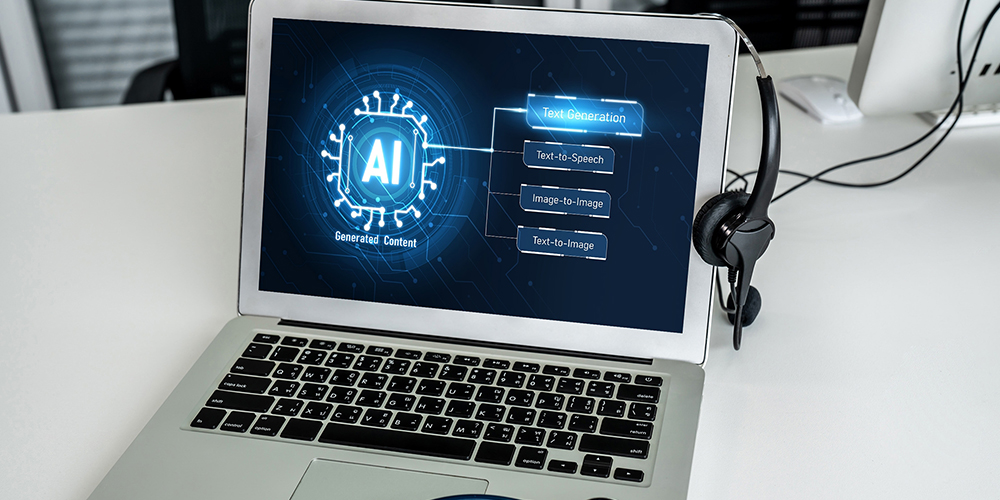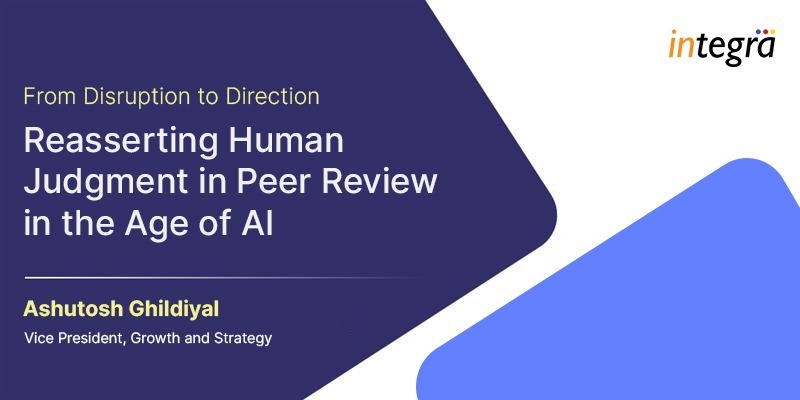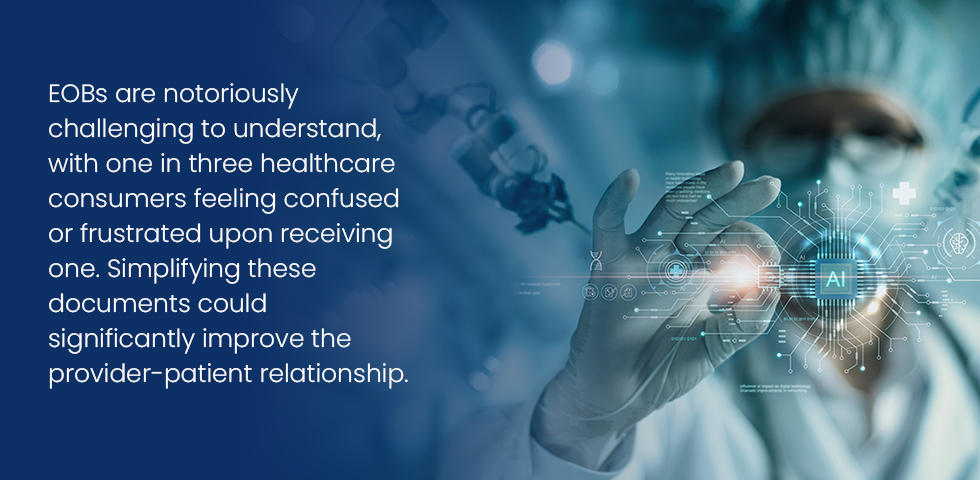Harnessing the Power of Generative AI to Transform Healthcare Communication

Generative AI is poised to become a $17.2 billion market in healthcare by 2032. The healthcare industry faces a critical communication gap. A 2023 study by the National Institutes of Health (NIH) revealed that only 12% of adults in the US possess the health literacy skills necessary to understand complex medical information. This lack of comprehension can lead to patient anxieties, medication non-adherence, and ultimately, poorer health outcomes. Additionally, healthcare providers are overburdened with administrative tasks, limiting the time available for clear and effective communication with patients.
Generative AI (artificial intelligence) is emerging as a powerful tool to address these challenges. This technology, capable of creating entirely new content – from text to images – holds immense potential to transform healthcare communication.
Here’s how generative AI is poised to revolutionize the way healthcare information is conveyed:
Improving Patient Engagement and Education with Generative AI
Imagine a world where patients receive personalized, easily digestible explanations of their diagnoses and treatment options. Generative AI can create patient education materials tailored to individual needs and literacy levels. This can involve generating clear and concise summaries of complex medical jargon, translating technical terms into plain language at a 7th-grade reading level (the recommended standard by the American Medical Association), and even developing interactive multimedia content to enhance understanding. Studies have shown that patients who receive clear and understandable information are 30% more likely to be engaged in their care and 20% more likely to adhere to treatment plans.
For instance, generative AI can simplify explanations of benefits (EOBs) and health plan coverage for members. EOBs are notoriously challenging to understand, with one in three healthcare consumers feeling confused or frustrated upon receiving one. Simplifying these documents could significantly improve the provider-patient relationship.
Another important application of generative AI for payers is speeding up the prior authorization process, which involves pre-approving coverage for specific treatments and medications before patients receive care.
Some recent studies tell us that the bedside manner of chatbots is actually rated as better than that of a human doctor. While doctors are often rushed and under pressure to move on to the next patient, chatbots can take the time to understand each patient’s background and engage more thoroughly. This capability is exemplified by the evolved AI doctor agents in China’s Agent Hospital, which have achieved an impressive 93.06 percent accuracy rate on a MedQA dataset (US Medical Licensing Exam questions) covering major respiratory diseases, according to Global Times. The use of generative AI in healthcare, as demonstrated by the world’s first AI hospital in China, illustrates the transformative impact this technology can have on patient communication and overall healthcare delivery.
Streamlining Clinical Documentation and Reporting with Generative AI
Clinical documentation is a time-consuming and tedious task for healthcare providers. Generative AI can automate much of this process, freeing up valuable time for patient care. By analyzing patient data and electronic health records (EHRs), generative AI can generate accurate and standardized reports, reducing errors and improving healthcare efficiency. Additionally, AI can assist with medical note-taking, summarizing patient encounters, and highlighting key findings for review. A recent report by Accenture estimates that AI-powered automation can save healthcare providers up to $150 billion annually in administrative costs.
For instance, generative AI can simplify explanations of benefits (EOBs) and health plan coverage for members. EOBs are notoriously challenging to understand, with one in three healthcare consumers feeling confused or frustrated upon receiving one. Simplifying these documents could significantly improve the provider-patient relationship.
Another important application of generative AI for payers is speeding up the prior authorization process, which involves pre-approving coverage for specific treatments and medications before patients receive care.
Enhancing Healthcare Provider-Patient Dialogue with Generative AI
The patient-provider relationship is paramount in delivering effective healthcare. Generative AI can facilitate more meaningful conversations by assisting with tasks such as appointment scheduling, medication reminders, and symptom pre-screening. Beyond automation, AI can also analyze patient communication patterns and suggest personalized dialogue strategies to improve bedside manner and patient engagement. This can be particularly beneficial for physicians facing language barriers or time constraints.
Overcoming Language Barriers in Healthcare with Generative AI
Communication breakdowns due to language barriers are a major concern in healthcare. Generative AI can bridge this gap by translating medical information into different languages in real-time. This not only improves patient understanding but also fosters trust and builds stronger patient-provider relationships. Generative AI can bridge this gap by translating medical information into different languages in real-time. This not only improves patient understanding but also fosters trust and builds stronger patient-provider relationships. Furthermore, AI can generate localized healthcare materials, ensuring culturally appropriate communication and catering to diverse patient populations.
The potential of generative AI to transform healthcare communication is undeniable. By personalizing patient education, streamlining administrative tasks, and facilitating more effective dialogue, AI can empower patients, improve healthcare efficiency, and ultimately, lead to better health outcomes. As technology continues to evolve, healthcare organizations that embrace generative AI will be well-positioned to deliver a more patient-centered and effective healthcare experience.
Ready to harness the power of generative AI for your healthcare organization?
At Integra, we offer advanced generative AI services specifically designed to improve healthcare communication. Our team of experts can help you develop customized solutions to:
- Create clear and engaging patient education materials
- Automate clinical documentation and reporting tasks
- Enhance patient-provider interactions through AI-powered chatbots and virtual assistants
- Overcome language barriers and ensure culturally competent communication
Contact us today to learn more about how generative AI can revolutionize the way you connect with your patients.
Recent Blogs

Print, Pedagogy, and AI: The New Architecture of Educational Publishing

From Disruption to Direction: Reasserting Human Judgment in Peer Review in the Age of AI




